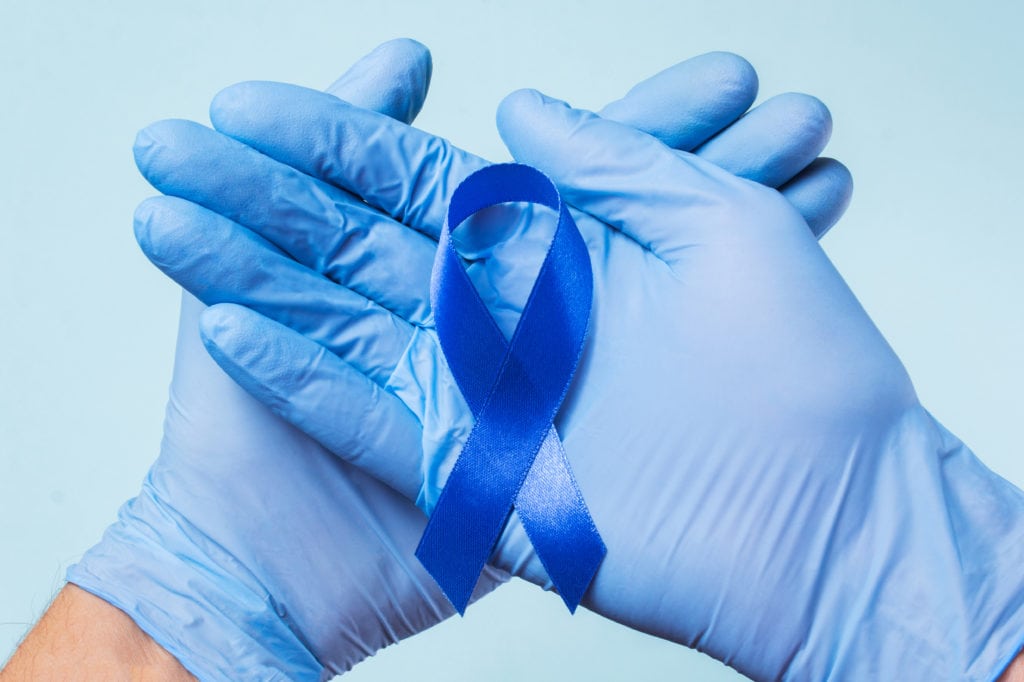3 Things To Know About Colon Cancer

It is officially fall. How about a pumpkin spice colonoscopy prep? I am kidding about the pumpkin spice part, but now is an excellent time to get up to date with colon cancer screening recommendations.
Colon cancer is the third most common cancer and the second most common cause of cancer deaths. The good news is that it is highly preventable. For one, adhering to screening recommendations can reduce your risk of colon cancer by 75-90%. Unfortunately, only about ½ of the people that should be screened actually follow through. You should be aware of the potential symptoms of colon cancer, when to be screened, and what you can do to decrease your risk of colon cancer.
When should you get screened for colon cancer?
Studies show that the rate of colon cancer in younger people is dramatically increasing. It is estimated that by 2030, colorectal cancer incidence rates will be up 90% in people between ages 20 and 34, and 28% for people between ages 35 and 49. As a result of this alarming trend, the American Cancer Society recently lowered the recommended age to start colonoscopies to 45 (from 50). The major gastrointestinal societies are awaiting more information before changing their recommendations, but at the very least, be vigilant and concerned when changes in your bowel habits occur in your 40s. Always consult with your doctor if you are experiencing the following:
- Change in bowel habits
- Blood in or on the stool (bowel movement)
- Stomach pain, aches, or cramps that do not go away
- Losing weight and you don’t know why
The New York Times published a great article where you can read more about the discussion on changing the recommended age from 50 to 45. One of my patients was diagnosed with colon cancer at age 37. She shares details of her diagnosis and journey here.
What can you do now to decrease your risk of colon cancer?
- If you are over 50, get a colonoscopy.
- If you have a family history of colon polyps or colon cancer in a close relative, start at age 40.
- If you don’t know your family history, ask.
- If your family members haven’t had their colonoscopies, bug them.
- If you are African-American, start at age 45.
- If there are any concerning symptoms or changes, come and get it checked out sooner.
- If you have already had a colonoscopy, make sure you know when you are due for your next one.
- Take action to reduce your risk of colon polyps and colon cancer with diet and lifestyle measures.
- Increase your intake of fruits and vegetables.
- Decrease your intake of red meat and processed meat (like hot dogs and sausages).
- Decrease your intake of refined carbohydrates (like white flour, white bread, white rice, pastries, sodas, snacks, pasta, sweets, breakfast cereals and added sugars).
- Don’t smoke.
- Minimize alcohol intake.
- Maintain a healthy weight.
- Keep physically active.
- Try to encourage a healthy gut microbiome with a high fiber diet, especially with prebiotic fiber sources.
- Prebiotics are foods that act as nourishment for human microflora. Prebiotics are used with the intention of improving the balance of these microorganisms.
- A healthy gut microbiome may help reduce your risk of colon cancer.
Who do I see if I have symptoms or need to make an appointment for colon cancer screening?
You’ll want to make an appointment with a gastroenterologist, someone who specialized in colon cancer screening options. If you’re in the Chicagoland area, feel free to check us out at Comprehensive Gastrointestinal Health (CGH). At CGH, we take a comprehensive approach, meaning we have a team of professionals including a GI doctor and nurse practitioner, a registered dietitian nutritionist, and a behavioral coach/counselor all on staff. We all work together to assess your symptoms and to recommend treatment options. We can help determine if it is time for colon cancer screening or surveillance and we can perform colonoscopies in our brand-new deluxe endoscopy suite. Through the support of our dietitian and/or our Comprehensive Weight Management Program we can help to reduce your risk of colon polyps and colon cancer.
Our team is eager to help prevent colon cancer and help you to achieve your health and wellness goals!
To learn more about our services, head on over to our Services page. You can schedule an appointment online here or talk to us directly by calling (224) 407-4400.
